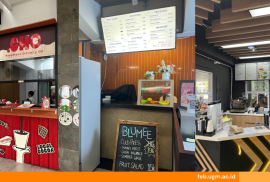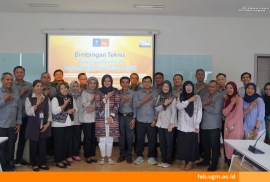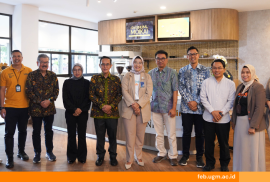
In today’s fast-paced digital era, consumers increasingly demand speed and accessibility in their shopping experiences. It has pushed business owners to adapt by utilizing various sales channels to reach a broader range of consumers.
Dimas Herdy Utomo, S.I.Kom., M.I.Kom., founder of Serabut Nusa and Circularva, explained that Indonesia’s high internet penetration, reaching 74.6% of the total population, presents a significant opportunity for MSMEs to market their products online. However, according to the data, only around 7% of consumers purchase online. In contrast, 20% still shop in physical stores, while the majority, about 73%, use a combination of multiple channels throughout their shopping journey. It highlights the growing importance of adopting an integrated business model, the omnichannel approach, across platforms.
Omnichannel is a marketing and sales strategy combining various online and offline channels to create a seamless and consistent customer experience across all interaction points (touchpoints). According to Dimas, while the product remains a key element in business, the increasing demand for speed and accessibility has made distribution an equally crucial factor.
“As the saying goes, the product may be king, but distribution is god, it’s what makes your product known to the world,” said Dimas in a training session titled ‘Using Omnichannel Strategies for MSME Products’ organised by the Entrepreneurship, Innovation, and MSME Research Division of FEB UGM in collaboration with Rumah BUMN at FEB UGM on Tuesday (22/07).
Therefore, it is essential to adopt an online-to-offline (O2O) approach. This business strategy combines the strength of offline channels such as physical stores, retail outlets, or malls, with online channels like websites, apps, and e-commerce platforms. O2O strategy enables customers to engage with businesses through various touchpoints and creates a more complete and consistent shopping experience.
Touchpoints are critical elements in the customer journey, starting from the awareness stage, moving through consideration and purchase, and continuing with retention and advocacy. Each stage requires different touchpoints, and the customer’s experience at each point can strongly influence their decision to proceed to the next stage. For this reason, consistency and integration across touchpoints are key to attracting new customers while fostering loyalty among existing ones.
For example, in a culinary MSME, a customer might first discover the restaurant through a photo of the menu posted on Instagram, which serves as the initial touchpoint (awareness). Attracted by the image, the customer visits the restaurant’s website to view the full menu, forming the second touchpoint (interest). Next, the customer reads reviews on Google Maps as part of the evaluation process before purchasing, which becomes the third touchpoint (consideration). Once convinced, the customer orders through WhatsApp, serving as the fourth touchpoint (purchase). After the purchase, the restaurant sends a thank-you message and a discount offer to encourage repeat visits (retention). Finally, a satisfied customer shares their positive experience with others, recommending the restaurant to friends (advocacy).
Dimas concluded by emphasizing that every touchpoint is vital to the communication cycle between businesses and customers. By implementing an omnichannel strategy, business owners can deliver customer experiences that are not only consistent but also personalized and meaningful. Additionally, data collected from each point of interaction can provide deeper insights into consumer behavior. It allows businesses to offer more personalized and satisfying services. With this approach, MSMEs can expand their market reach and grow their businesses more effectively.
Reportage: Najwah Ariella Puteri
Editor: Kurnia Ekaptiningrum
Sustainable Development Goals






